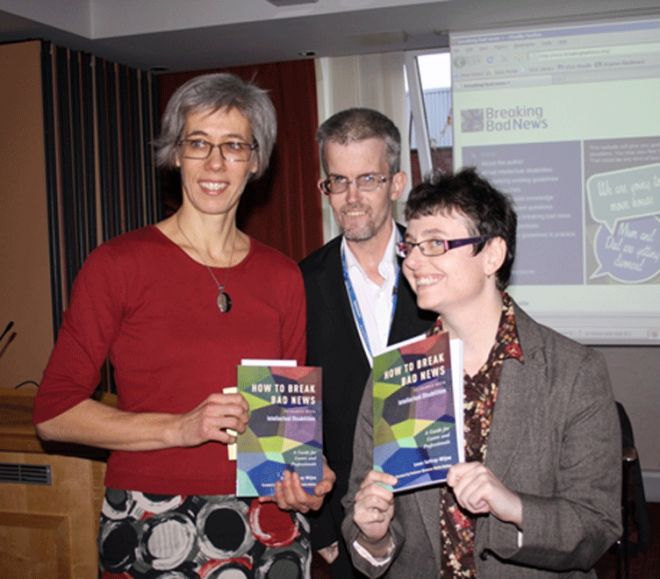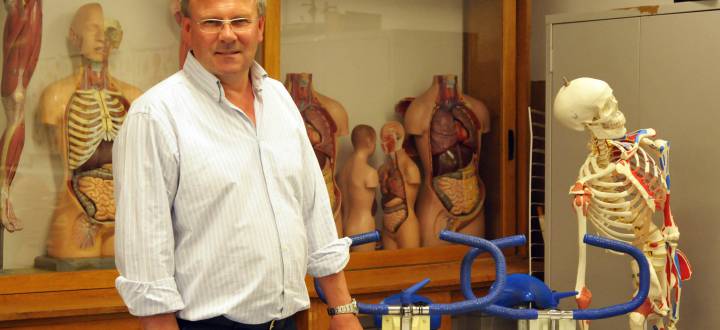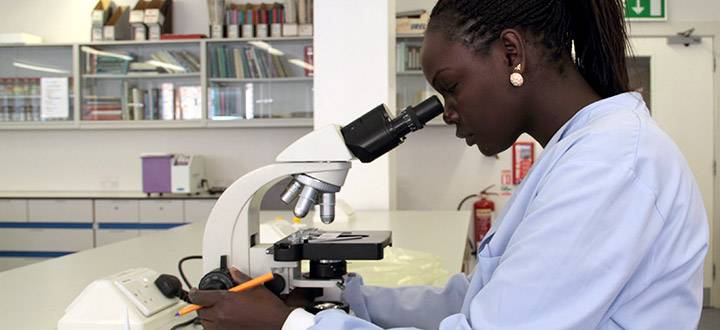Breaking bad news to people with learning disabilities
Bridging the gap between learning disabilities and palliative care
 "I don't know anything about people with learning disabilities," is an often-heard comment from healthcare staff in hospices and hospitals. "How can I communicate? Assess their pain and other symptoms? Include them in decision-making?"
"I don't know anything about people with learning disabilities," is an often-heard comment from healthcare staff in hospices and hospitals. "How can I communicate? Assess their pain and other symptoms? Include them in decision-making?"
"I don't know anything about illness and dying," is an often-heard comment from staff working in learning disability services. "I hope it doesn't happen on my shift."
It was this huge gap in knowledge and understanding that prompted Irene Tuffrey-Wijne, a nurse with substantial clinical experience in the fields of both learning disabilities and palliative care, to embark on a career in research and development.
Involving people with learning disabilities in research
Dr Tuffrey-Wijne's research has a strong focus on the experiences and needs of people with learning disabilities, giving them a voice. She has used and adapted research methodologies to suit their needs, including participant observation, interviews and focus groups. People with learning disabilities have been part of the team as advisors and co-researchers. This was ground breaking in the area of end-of-life care research. It has resulted in a range of outputs that can be used by families, care workers and professionals (in the form of books and a website), and by people with learning disabilities themselves (picture books that explain cancer and dying in images rather than words).
Breaking bad news to people with learning difficulties
An in-depth study of the experiences of people with learning disabilities who had cancer showed that there were complex issues around breaking bad news. Dr Tuffrey-Wijne followed it up with a study focused exclusively on these issues. Her study resulted in the development of new guidelines for breaking bad news to people with learning disabilities, the first such resource available. The guidelines have been published as a book, (also translated into Tuffrey-Wijne's native Dutch), and as a web-based resource.
The safety of patients with learning disabilities in hospitals
There is growing evidence that people with learning disabilities are at risk of premature death due to failures of the healthcare system. Dr Tuffrey-Wijne recently led a study investigating the factors that affect patient safety of people with learning disabilities in NHS hospitals.
She found that people with learning disabilities are largely invisible within hospitals, meaning their additional needs are not recognised or understood by staff. Examples included delays in clinical investigations and treatment by staff who were unclear or unaware of what to do in certain situations when patients had trouble expressing their consent or opinions, or lacked an understanding about what was required from them. The findings of the research have been picked up by national policy makers; prompting for example discussions within the Care Quality Commission (CQC), which subsequently decided to include questions on learning disability in its inspections of NHS hospitals.
Improving care through shared knowledge
There is overwhelming evidence that the care of people with learning disabilities at the end of life is improved when professionals from palliative care and intellectual disability services work together and share their knowledge. Between 2008 and 2014 Dr Tuffrey-Wijne chaired the Palliative Care for People with Learning Disabilities (PCPLD) Network (http://www.pcpld.org/), which aims to facilitate sharing of expertise and resources. During that time, membership of the PCPLD Network increased five-fold. Dr Tuffrey-Wijne continues to be closely involved, and chairs an annual award scheme for excellence in palliative care for people with learning disabilities.
A European vision for best practice
Since 2012 Dr Tuffrey-Wijne has chaired a Taskforce on Intellectual Disabilities (the internationally recognised term for "learning disabilities"), commissioned by the European Association of Palliative Care to develop European-wide norms for best practice in this field. The Taskforce produced a White Paper which will be published in the summer of 2015, with the expectation that it will influence policy and practice across Europe.
Find out more about Dr Tuffrey-Wijne.
Read more research case studies.
Contact us
- For non-student research enquiries, email the Research Office
- Research contacts
- Graduate Research School contacts
- Business and Enterprise contacts
- How to get to Kingston University
Contact us
- For non-student research enquiries, email the Research Office
- Research contacts
- Graduate Research School contacts
- Business and Enterprise contacts
- How to get to Kingston University


